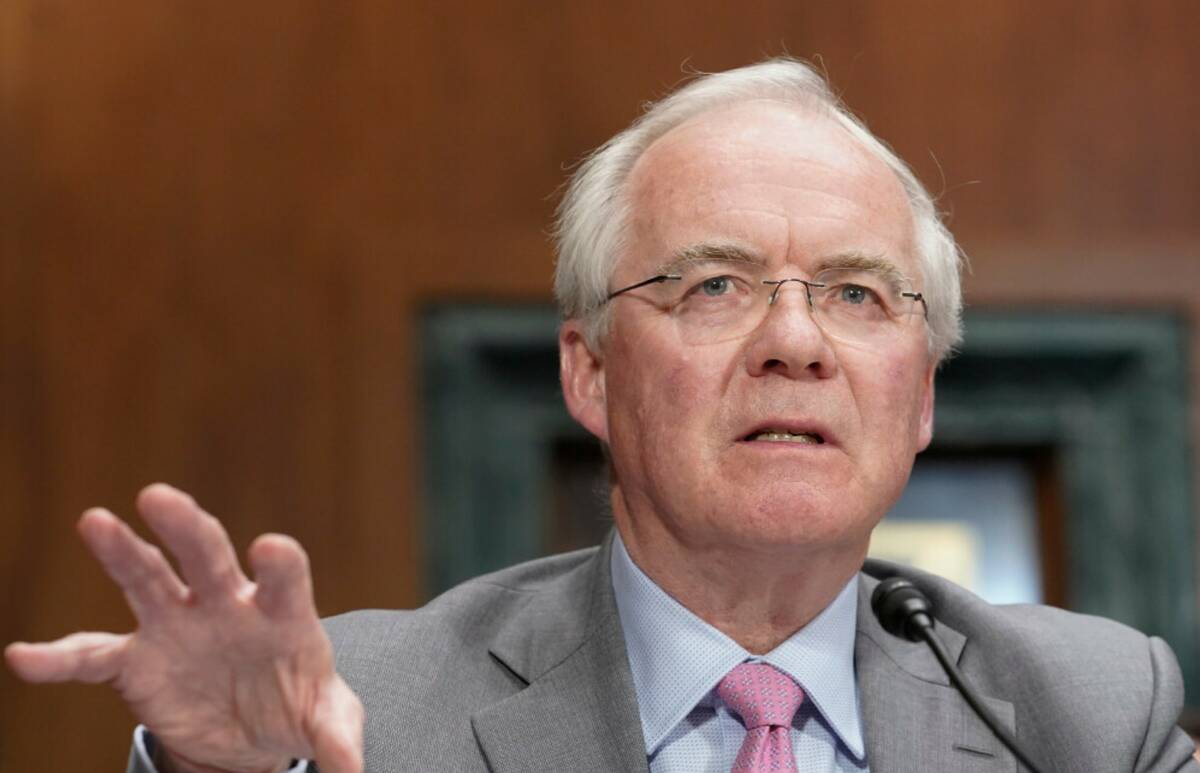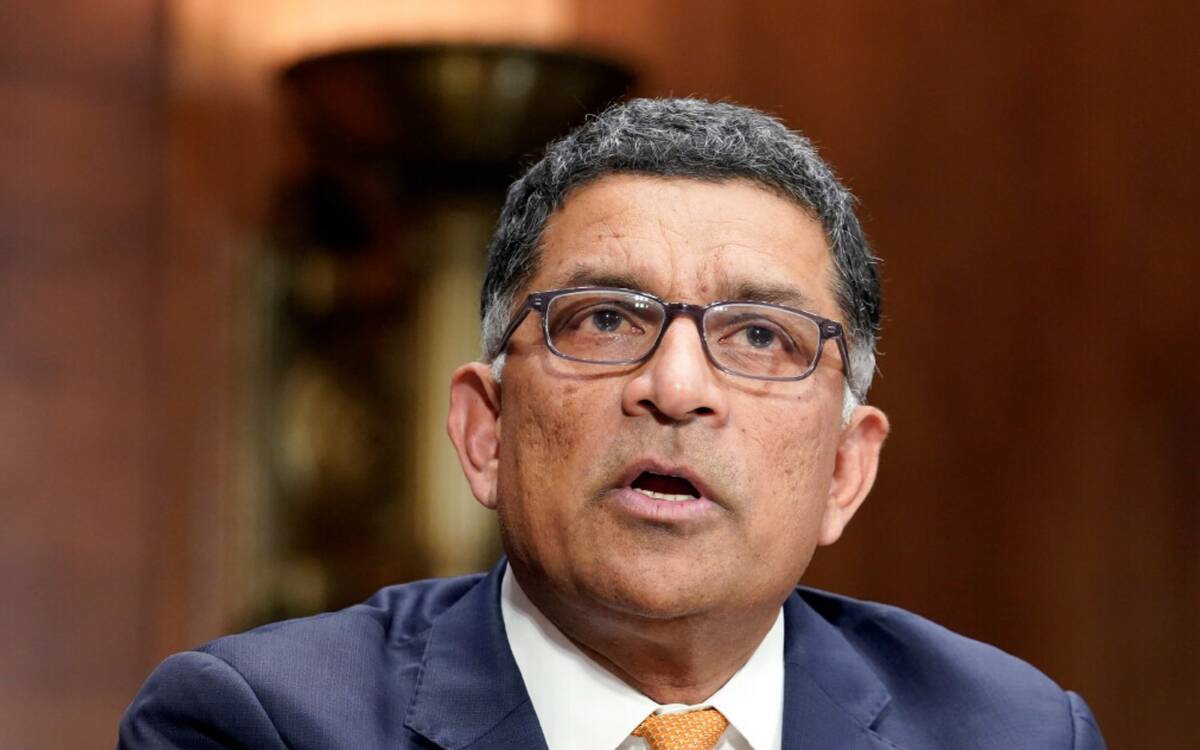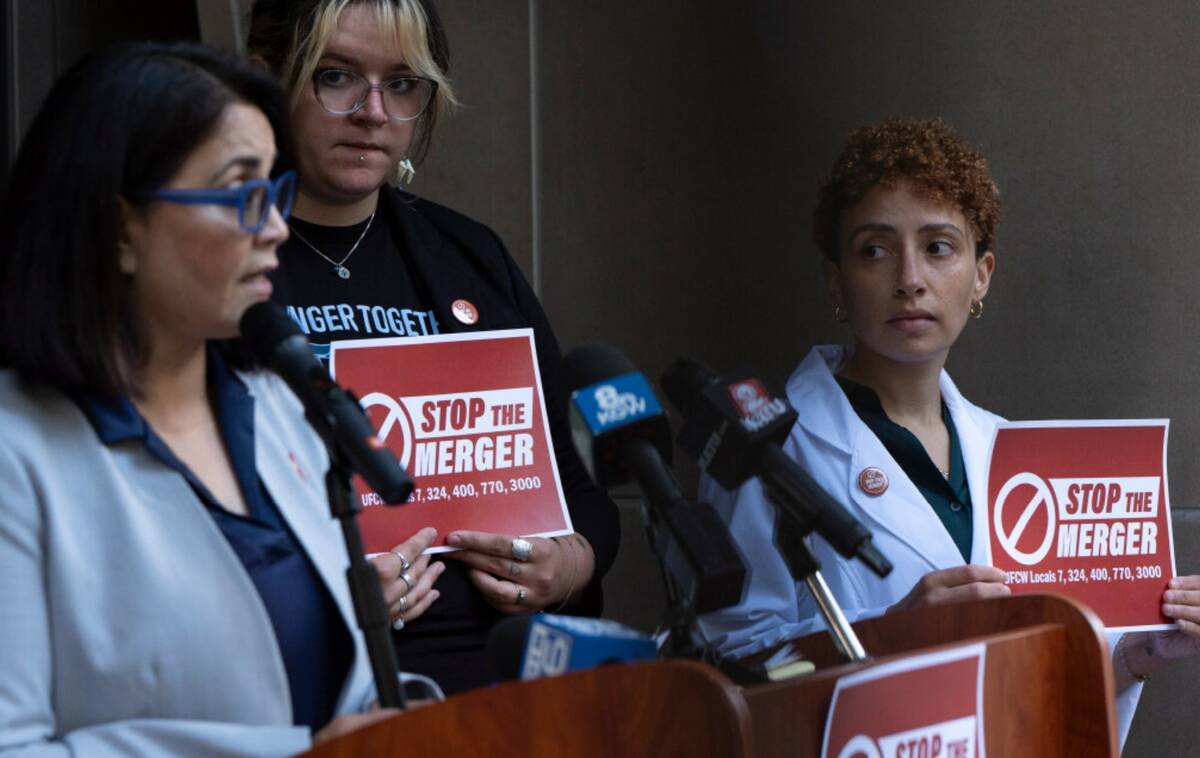Expect lower prices after Kroger-Albertsons merger, CEO says
PORTLAND, Ore. — The chief executive officer of Kroger insisted Wednesday that merging with rival Albertsons would allow the two supermarket companies to lower prices and more effectively compete with retail giants like Walmart, Costco and Amazon.
Kroger CEO Rodney McMullen argued in favor of what would be the largest grocery chain merger in U.S. history while testifying during a federal court hearing in Oregon on the U.S. government’s request for a preliminary injunction that would block the $24.6 billion deal.
“The day that we merge is the day that we will begin lowering prices,” McMullen said while under questioning by a lawyer representing his company.
Addressing another issue that has worried shoppers in communities with both Albertson and Kroger-run stores, McMullen said Kroger was committed to not closing any branches immediately if the merger is finalized but might down the road if it decides location changes or consolidations are needed.
The Federal Trade Commission sued early this year to stop the merger the two companies proposed in Oct. 2022 after Kroger agreed to purchase Albertsons. The commission alleged the deal would eliminate competition and lead to higher food prices for already struggling consumers.
Kroger, based in Cincinnati, Ohio, operates 2,800 stores in 35 states, including brands like Ralphs, Smith’s and Harris Teeter. Albertsons, based in Boise, Idaho, operates 2,273 stores in 34 states, including brands like Safeway, Jewel Osco and Shaw’s. Together, the companies employ around 710,000 people.
Battle over pricing
FTC attorneys argued during the U.S. District Court proceedings on the commission’s injunction request that in the 22 states where the two companies compete now, they closely match each other on price, quality, private label products and services like store pickup. Shoppers benefit from that competition and would lose out if the merger is allowed to proceed, they said.
McMullen countered that argument by saying that Albertsons prices are 10-12% higher than Kroger’s and that the merged company would try to reduce the disparity as part of a strategy for keeping customers. Walmart now controls around 22% of U.S. grocery sales. Combined, Kroger and Albertsons would control around 13%.
“We know that pricing is going to continue to go down,” McMullen said.
His statements and the upcoming testimony of Albertsons CEO Vivek Sankaran were expected to be critical components of the three-week hearing, which is at its mid-point. What the two say under oath about prices, potential store closures and the impact on workers will likely be scrutinized in the years ahead if the merger goes through.
FTC Chief Trial Counsel Susan Musser referred to Kroger’s 2021 investor fact book to make the argument that the merger would affect competition in areas where the two company’s stores overlap. According to figures included in the document, Albertsons is Kroger’s biggest competitor in multiple metropolitan areas, including Portland.
A Kroger attorney countered by saying that Walmart remains Kroger’s largest competitor in a majority of markets around the country.
Details emerge
The FTC and labor union leaders also claim that workers’ wages and benefits would decline if Kroger and Albertsons no longer compete with each other. They’ve additionally expressed concern that potential store closures could create so-called food and pharmacy “deserts” for consumers.
Albertsons has argued the deal could actually bolster union jobs, since many of it and Kroger’s competitors, like Walmart, have few unionized workers. McMullen said Wednesday that Kroger was committed to honoring existing labor contracts.
FTC lawyer Musser said the merger still might affect working conditions since union contracts are typically renegotiated every three years.
Under the proposed deal, Kroger and Albertsons would sell 579 stores in places where their locations overlap to C&S Wholesale Grocers, a New Hampshire-based supplier to independent supermarkets that also owns the Grand Union and Piggly Wiggly store brands.
The FTC alleges that C&S is ill-prepared to take on those stores. Laura Hall, the FTC’s senior trial counsel, cited internal documents that indicated C&S executives were skeptical about the quality of the stores they would get and may want the option to sell or close them.
C&S CEO Eric Winn, for his part, testified last week that he thinks his company can be successful in the venture.
The FTC is seeking the injunction to block the merger temporarily while its lawsuit against the deal goes before an administrative law judge. U.S. District Judge Adrienne Nelson was expected to hear from around 40 witnesses before deciding whether to grant the request.
If Nelson agrees to issue the injunction, the FTC plans to hold the in-house hearings starting Oct. 1. Kroger sued the FTC last month, however, alleging the agency’s internal proceedings are unconstitutional and saying it wants the merger’s merits decided in federal court.
The attorneys general of Arizona, California, the District of Columbia, Illinois, Maryland, Nevada, New Mexico, Oregon and Wyoming all joined the FTC’s lawsuit on the commission’s side. Washington and Colorado filed separate cases in state courts seeking to block the merger.




















